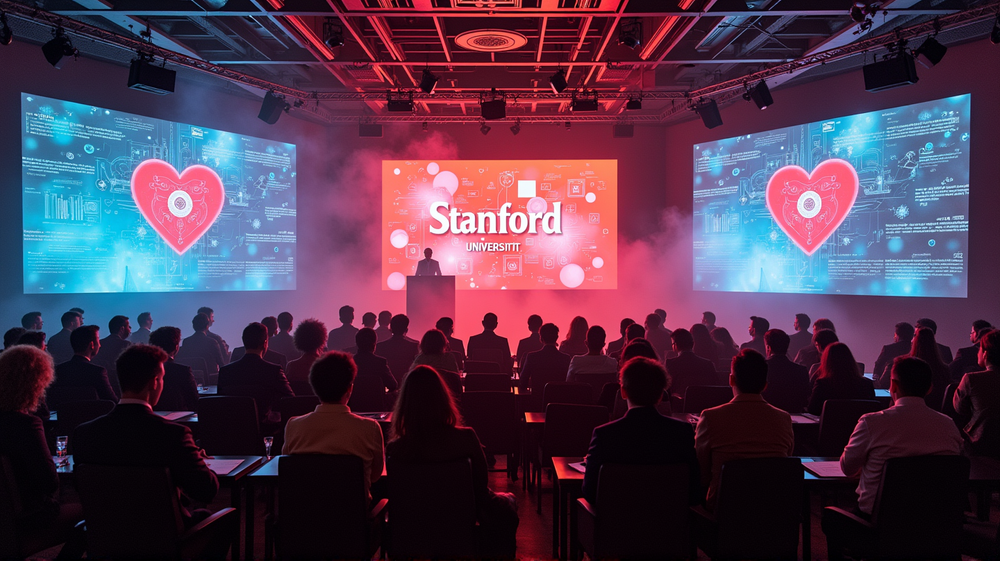Symposium Explores Health Tech's Uncharted Future
In a world where technology advances at lightning speed, imagining how ancient physicians like Hippocrates would react to today’s digital health tools invites both awe and humility. This intriguing thought experiment was at the heart of a captivating symposium at Stanford University, held at the Frances C. Arrillaga Alumni Center, where speakers grappled with the vast potential and complexity of health technologies.
Ancient Imaginations, Modern Innovations
Opening the event, Eleni Linos, MD, shared how she’d explain contemporary patient-facing chatbots to someone from another era. The symposium brought together hundreds of industry luminaries, from doctors and investors to scientists and engineers, all exploring health tech’s future with humility and collaboration. According to Stanford Medicine, technology’s future relies on this interdisciplinary synergy.
Transforming Healthcare Landscapes
David Entwistle, CEO of Stanford Health Care, emphasized that technology must deliver real value. With discussions ranging from AI revolutionizing drug discovery to the importance of biomedicine, the symposium honed in on how future medical professionals must grasp these evolving principles without losing foundational knowledge.
Smartwatches: A Stepping Stone?
Sumbul Desai, MD, from Apple, explored how smartwatches could reshape health insights, despite strict privacy settings. She highlighted the delicate balance between innovation and customer trust. Discussions also ventured into digital health access, with experts cautioning against overreliance on AI for medical advice and the risks of misinformation.
Innovation Means Distribution
Innovators face hurdles when moving from ideas to market. Emily Melton of Threshold Ventures pinpointed distribution as a critical barrier, urging health tech entrepreneurs to present holistic business solutions that integrate seamlessly with existing systems.
Food is Medicine
Nutritional insights weren’t left out, as Dariush Mozaffarian, MD, advocated for rethinking food’s role in healthcare. With poor nutrition as a leading cause of preventable diseases, integrating “food as medicine” into health strategies was underscored.
Bridging Technology with Humanity
Speakers like Jeff Tangney from Doximity, and robotics expert Michael Yip, PhD, discussed the merging of clinical tools and technology from robotics to molecular monitoring. The overarching theme remained that technology should enhance patient relationships, guided by empathy and purpose.
In conclusion, Eleni Linos reminded attendees that while digital sophistication is noteworthy, the drive toward human-centric care and innovation must prevail. The symposium illuminated both an exciting and challenging path forward, encapsulating a visionary future for healthcare technology.
Note: This article captures insights shared during the symposium and reflects collaborative efforts within Stanford Medicine’s integrated health system.




